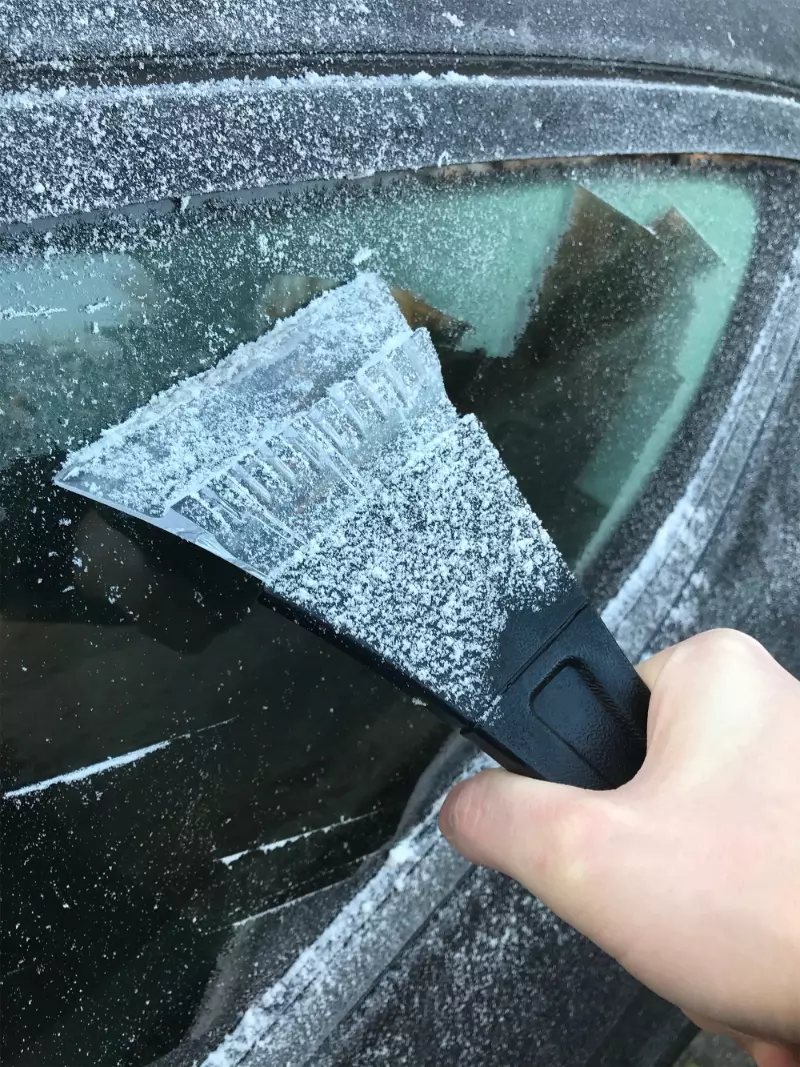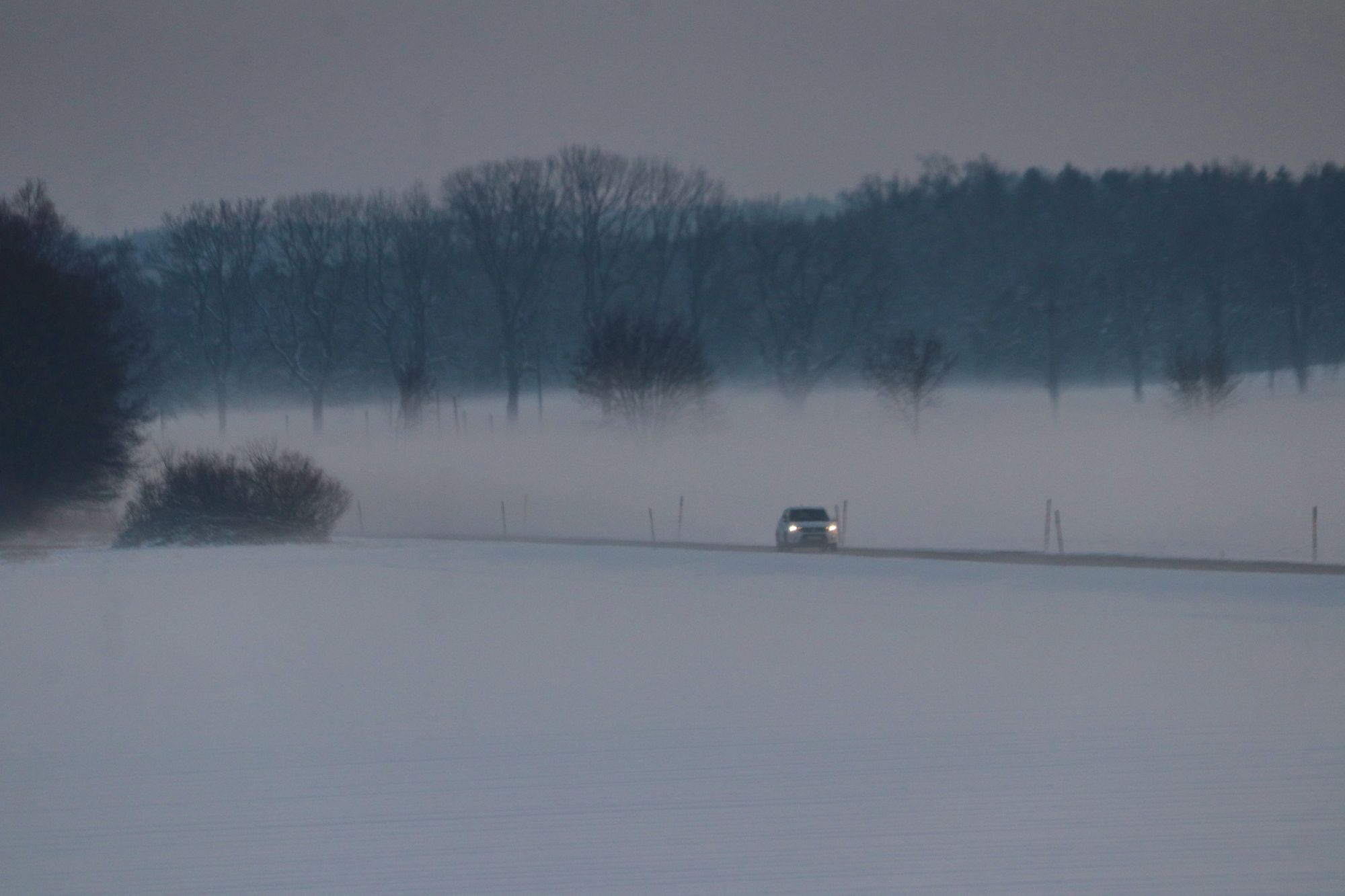Preventing Road Accidents In Icy Conditions
Are you looking for tips for preventing road accidents in icy conditions? We look at what you need to know when driving in icy and snowy weather and how you should prepare.
Driving in Icy and snowy weather
During the winter months, make sure to check your local weather forecasts for any warnings of icy or snowy weather before driving anywhere. It is crucial that drivers do not operate any vehicle in these conditions unless your journey is absolutely essential. If this is the case, ensure you take exceptional care, pay extremely close attention to your surroundings and allow yourself extra time for your trip.
It is recommended that you take an emergency pack with you, containing things such as an:
- Ice scraper
- De-icer
- First aid kit
- Torch
- Jump leads
- Shovel
- Warm clothing and boots
- Emergency food and drink in case you find yourself stuck, or experience a breakdown

Before setting off on any journey through cold weather conditions, you must ensure you have impeccable vision through all of your vehicles windows, windscreen and mirrors and that they are completely clear in all directions of snow and ice. All your lights and number plates must be clear, visible and legible, and you should check that your planned route is clear of traffic delays or other issues before driving in snowy weather.
It is crucial that you drive responsibly, take great care even if the roads have already been treated, operate more slowly, particularly on bends, keep far enough away from the car in front, the car behind, and any other road users, accelerate and brake gently, avoid sudden unnecessary actions and be extremely vigilant when overtaking.
You should be mindful that road conditions could change drastically over relatively short distances and pay close attention to any message signs providing information on road, weather and traffic conditions ahead.
How to prepare for driving on ice
Suppose you have analysed the situation thoroughly and decided that your journey is necessary. In that case, you must take on board this information to help save the lives of you, your passengers, and other road users.
Before you set off, ensure all windows and mirrors on the vehicle are clear and visible. Tyre grip is significantly reduced on icy roads, meaning it is extremely easy to slip if not careful, especially on black ice; using a higher gear could be more appropriate for aiding grip, and braking distances are increased tenfold compared to a dry road, so taking extra care is imperative.
Even if you manage to avoid an accident, there is still a chance your vehicle could get stuck, leaving you with a difficult journey home; in this case, it is highly recommended that you have an emergency pack ready with you, containing a charged mobile phone, first aid kit, blanket, spare clothes, food and drink, etc. Awareness and smoothness are critical when driving on icy roads.
You should make sure to travel at a reasonable speed, making sure to accelerate, steer, brake, and change gear as placidly as possible to reduce any risk of your vehicle skidding. If you plan to meet somebody, it is best to inform them of your intended route and expected arrival time.
Tips for Icy Road Driving
Better safe than sorry is genuinely the most accurate statement in regards to driving on icy roads. The best way to avoid any accidents or fatalities on dangerous winter roads is to stay off them. While icy roads are definitely inconvenient, nothing will inconvenience you more than a wreck, breakdown or having your vehicle get stuck in a ditch.
If you adamantly intend on travelling during cold weather, you should heed this advice on taking precautions and driving responsibly.

Make sure your vehicle is prepared for winter driving
Vehicle winterisation is essential for those planning to travel during the colder months. You must take your vehicle to a professional, trained mechanic to ensure your vehicle is accurately maintained. Correctly winterising your vehicle will optimise you and your passenger's safety and your vehicle's efficiency during the winter.
Pay attention to the weather.
When travelling during the wintertime, you must stay informed on the shifting weather patterns that you could be driving in. Awareness of your surrounding weather conditions will help keep you prepared for any situation.
Slow down.
Slippery roads full of snow and ice are extremely hazardous and should only be driven on with extreme care. Ensure you take extra precautions when travelling on dangerous roads by making sure you slow your speed down, particularly on bends. This will help protect you, your vehicle passengers and any other road users in the vicinity.
Turn into a slide.
If, whilst driving, you suddenly begin fishtailing or sliding, it typically means that you are moving at too fast a pace. You should be mindful of reducing your speed significantly in these kinds of weather conditions to reduce the chances of this happening.
Wear your seatbelt.
Statistically, at least four out of five car crashes occur at speeds of less than 40 miles per hour. In addition, people have been killed at speeds less than 12 miles per hour from being ejected from a vehicle when not wearing their seatbelts correctly. Ensuring you and your passengers wear your seatbelts is crucial every single time you get into a vehicle, and with the added dangers of sliding on ice, it becomes that much more critical.
Be gentle with braking.
The most frequent reason vehicles can lose control is due to braking. Antilock brakes do not work well on icy and snowy roads. Often, the system will cease your wheels regardless. The steering wheel cannot control sliding wheels, putting you in a highly perilous and vulnerable situation. This is why it is incredibly important to take great care when braking.
Be aware of your surroundings.
Another common occurrence in icy road accidents is when an out-of-control vehicle emerges from nowhere and hits you. Avoid dangerous collisions with other road users and hefty insurance costs by being extremely mindful of your cars surrounding at all times. Being on the ball can mean all the difference for the lives of you and those around you.
Gritting private roads and car parks
When the roads become slippery and dangerous in the wintertime, this can put both road users and pedestrians at serious risk. As such, most local councils will typically clear and grit many main roads and pathways using rock salt to ensure the safe travels of residents.
However, while local councils do a marvellous job, they have their limits and are obviously unable to grit every road in the country, meaning some more minor roads and lanes will remain unsafe.
The council also are not responsible for any private roads or land, meaning that private landowners will have to maintain their paths, roads and car parks themselves or seek out the help of a professional road gritting company to carry out the job for them.
Road gritting is a vital part of winter maintenance, as, without it, the harsh weather conditions will cause snow and ice build-up that could significantly damage your vehicle. Private gritting services can save you considerable time and effort by reducing the amount of work you have to do to maintain your land. It is actually a legal requirement that any commercial premises be safely accessible.
Alternatively, suppose you have domestic property. In that case, winter gritting can still be crucial for getting in and out of your land and completing vital tasks, especially if there ever happens to be an emergency.
We offer rock salt spreading throughout Aberdeen, Peterhead, Dundee and Aberdeenshire. Follow the link below to find out more about the areas that we offer road gritting in north Scotland.

